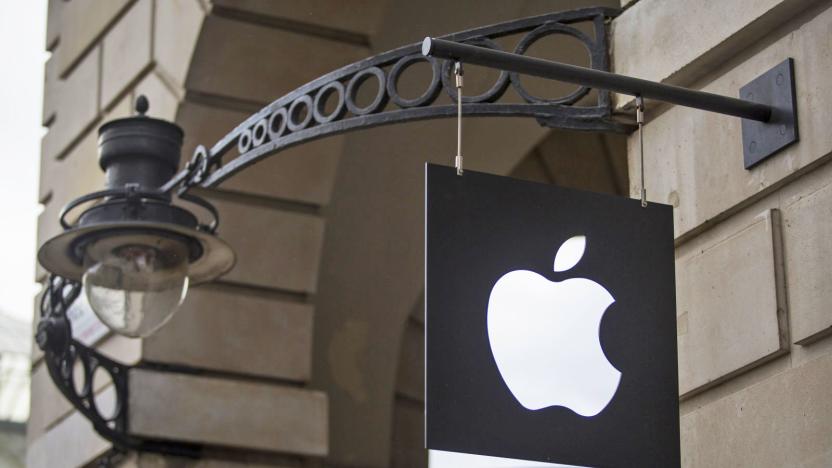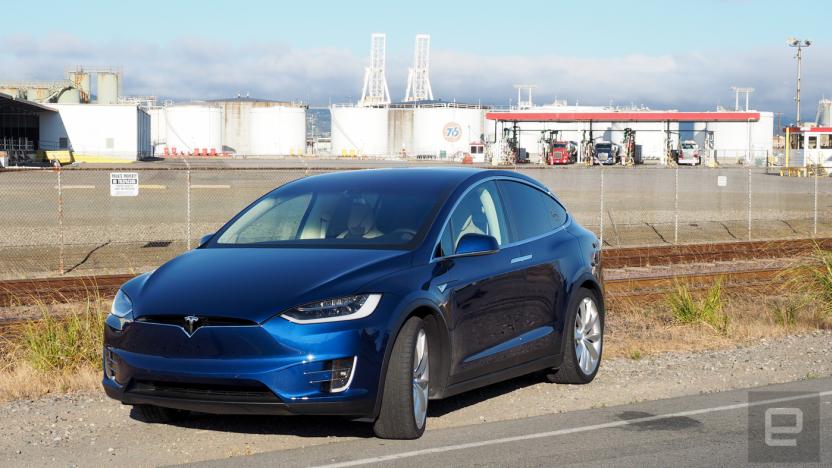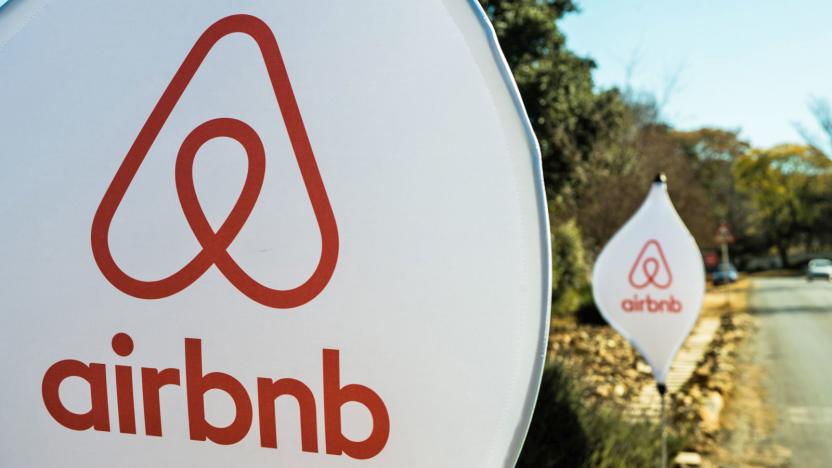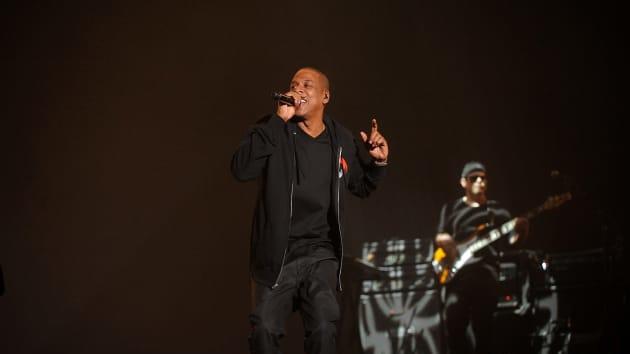litigation
Latest

Alleged ‘Fortnite’ hacker's mom fights anti-cheating lawsuit
The fight against people cheating in online games is getting ugly. Specifically, Epic Games is suing 14 year-old Caleb Rogers for allegedly modding the game and causing the developer to lose profits from his activity in the free-to-play "Battle Royale" mode for Fortnite. Rogers' mother filed a letter with North Carolina's US District Court saying that Epic "has no capability of proving any form of modification" because her son merely installed cheats he downloaded from Addicted Cheats, versus altering the game's source code himself.

Nokia and Apple end their patent fight and become health allies
Over recent months, Apple has been embroiled lawsuits related to patent licensing. While its fight with Qualcomm continues to rumble on, the company confirmed today that it's resolved one of its major disputes by signing a multi-year agreement with Nokia to utilize its intellectual property.

Qualcomm sues iPhone suppliers to get to Apple’s money
Qualcomm and Apple are at each other's throats yet again. Well, indirectly this time. The latest development in this legal saga is that now the chip-maker is suing Foxconn, Pegatron, Wistron and Compal Electronics for refusing to pay their due licensing fees. "Qualcomm seeks an order that would require the defendants to comply with their long-standing contractual obligations to Qualcomm, as well as declaratory relief and damages," the company said in a press release.

Lawyer in copyright-trolling porn shakedown pleads guilty
Copyright issues typically follow big companies legally challenging folks who upload protected content without their say-so. But the two lawyers behind Prenda Law took file-sharing infringement to a bizarre level when they uploaded porn videos and laid in wait to sue anyone who downloaded them, raking in an incredible $6 million in extracted settlement fees. Both John Steele and Paul Hasmeier were indicted in mid-December for perjury, fraud and money laundering, and yesterday Steele pled guilty to the latter two. A porn troll has fallen.

Uber faces $5 million suit from San Francisco's oldest cab company
Another party is suing Uber over the ride-hailing service's business practices. This time it's San Francisco's Flywheel, the taxi company formerly known as DeSoto Cab, also known as SF's oldest taxi company. To the tune of a $5 million-plus federal suit, Flywheel alleges that since UberX came to be in 2012, the city's taxi industry has lost 65 percent of its riders and 30 percent of its drivers, according to SF Gate.

Tesla sues Michigan over law prohibiting direct sales
Tesla is suing the home of the auto industry. The electric car manufacturer started litigation against Michigan Governor Rick Snyder today over a law that prohibits the automaker's direct-sale model in the state, according to a report from Reuters. This comes after two years of trying to get the legislation changed via other methods.

Airbnb files suit against San Francisco over rental laws
Airbnb's long-running tussles with home-city San Francisco have escalated even further. The rental outfit recently sued the city, claiming that a new law requiring hosts to register their living spaces with local government before listing them via Airbnb violates federal law. Which law? The Communications Decency Act, which, in part, ensures a website isn't on the hook for any damages that arise from what users might post on said website.

US Chamber of Commerce suing Seattle over ridesharing unions
When Seattle approved Uber and Lyft drivers organizing in December, the city did it knowing that the practice was illegal. Independent contractors aren't allowed to do so under federal law because it basically amounts to price fixing. And now the inevitable has happened: The United States Chamber of Commerce is suing Seattle because the city allowed the on-demand workers to unionize, Reuters reports. It doesn't sound like Emerald City is going down without a fight, though. Councilman Mike O'Brien says that there are "millions of dollars" in place for what could be a lengthy legal battle.

GamerGate target drops case against harasser that started it all
Game developer Zoë Quinn has been through an awful lot in the 18 months since an ex-boyfriend posted details of his relationship with her online. But now she's dropping harassment charges against the man who essentially started the GamerGate firestorm because it's not worth the emotional trauma to carry the case forward anymore. "Ironically, getting a restraining order against Creep Throat [Quinn's pseudonym for her ex] was the least effective thing I could do in terms of getting him out of my life for good, and for protecting myself," she writes.

Google paid Apple $1 billion to be the default search on iOS
$1 billion. That's how much Google paid Apple in 2014 to be the default search app on the iPhone, according to court transcripts obtained by Bloomberg. As you might imagine, neither company is too happy about their business deal being made public, and as the publication notes, the court transcript "vanished without a trace" late yesterday. But whether that was because the court in the ongoing litigation between Google and Oracle eventually bowed to the whims of Cupertino and Mountain View's requests for redaction isn't clear.

TiVo sues Samsung before its money-making patents expire
TiVo is back in the litigation game with a new lawsuit against Samsung, according to its latest earnings report. The company has avoided such disputes since it settled with Dish Network, Verizon and other companies for over $1 billion. However, its Time Warp patent (which allows you to record one program while watching another) is what helped it win those sums, and it's set to expire in 2018. As a result, CEO Tom Rogers said that TiVo will assert its newer IP. "People know that we have quite a track record when it comes to our litigation and they also know that we don't pursue these things unless we believe there is significant damage opportunity."

TWC robo-calls customer 153 times, now owes her $229,500
Reuters reports that Time Warner Cable has been slapped with a hefty ($229,500) fine after hammering one of its own customers, Araceli King of Irving, Texas, with robo-calls. The cable company reportedly autodialed her 153 times in less than a year. The kicker: they weren't even looking for her -- TWC was actually looking for the guy that originally owned the phone number. But even after repeatedly pleading with the company and a seven minute discussion with a TWC rep in which she made it clear that she wasn't Luiz Perez (the number's original owner), she kept receiving calls. The harassment was so consistent and extensive that the company continued calling her -- an astounding 74 times -- after she instigated her lawsuit in March 2014.

Judge rules Pandora has to increase royalty payouts to BMI
Pandora's propensity for litigation is pretty storied by this point, but it seems like the internet-radio outfit's luck has run out. A New York judge has ruled that Pandora must raise its payout rates to Taylor Swift's music publishing house BMI, from 1.75 percent of its revenue to 2.5 percent, according to The New York Times. The full ruling is still being kept under wraps at the moment, but naturally, Pandora says it's going to appeal the decision. Given that an appeals judge recently ruled in the outfit's favor to keep royalty payout rates from rising, it isn't clear what could happen in this instance. For artists' sakes, let's hope that history doesn't repeat itself here. [Image credit: Getty Images for TS]

Aereo auctioning its web TV tech under broadcasters' watchful eyes
A US bankruptcy judge has declared that Aereo can sell off its technology to the highest bidder, but with a few large exceptions, according to Reuters. First off, the broadcasters who forced the streaming service off the air and into Chapter 11 can oppose any sale they don't like. They'll also be allowed to analyze Aereo's customer records before they're deleted to determine possible damages in further court proceedings. Interest is actually high in Aereo's tech -- despite all the legal problems, there are 17 potential bidders for the auction. However, that presents a dilemma for CBS, NBC, FOX and other broadcasters.

Judge finds Grooveshark employees guilty of mass copyright-infringement
Grooveshark's disappearing and reappearing act looks like it could finally come to an end; permanently. A Manhattan judge has ruled that because Grooveshark employees themselves had uploaded 5,977 songs to the service and infringing on copyrights in the process, the outfit couldn't be granted safe harbor for hosting music from the likes of Jay-Z and Madonna. Meaning, the firm's previous method of compliance under the Digital Millennium Copyright Act was null and void because it wasn't users who uploaded the copyrighted material (which would be subsequently removed upon request), it was in-house staffers including CEO Samuel Tarantino and CTO Joshua Greenberg, according to The New York Times. Reuters notes that there was also evidence of internal communications from Greenberg that told employes to share music as much as possible from outside the office in an effort to foster growth -- all as a condition of employment.

You got served ... on Facebook :(
It's made you distrustful and toyed with your emotions and now a Staten Island Support Magistrate has deemed Facebook an acceptable vehicle for your legal woes. According to the New York Post, Gregory Gliedman ruled that Noel Biscocho could use the social network to serve his ex, Anna Maria Antigua, with a legal notice that he no longer wishes to pay child support for their 21-year-old son. The ruling reportedly came after Biscocho attempted to reach Antigua multiple times in the real world. And here we thought breaking up via text message was bad. [Image credit: Peter Dazeley / Getty]

NVIDIA aims its first patent lawsuit at Samsung and Qualcomm
It's true, Samsung is about to find itself back in the courtroom facing another round of patent litigation -- but this time, the lawsuit isn't coming from a direct competitor. NVIDIA just filed its first patent lawsuit in the company's 21 year history, and charging both Samsung and Qualcomm with infringing seven of its GPU patents. NVIDIA says that it's tried to negotiate licensing fees with the companies directly, but have made no progress. "Samsung repeatedly said that it was mostly their suppliers' problem," the company wrote on its official blog. Now NVIDIA is taking them both to court.

College football settlement costs EA another $8 million
When EA settled its ongoing litigation with student athletes in September 2013 related to its NCAA Basketball and Football video games, its expenses amounted to $40 million. Now, it is tacking on $8 million more in expected expenses for fiscal 2014, bringing the total to $48 million, according to the company's year-end financial results. EA reported $40 million in settlement expenses as recently as the last fiscal quarter, ending in December. The publisher canceled its 2014 college football video game in September, following the NCAA's decision to not renew its licensing agreement with EA in July. The settlement by EA and the Collegiate Licensing Company led to another lawsuit in November, this one by the NCAA against EA. EA planned to continue working with the CLC to develop college sports games without the use of the NCAA's marks and logos, a non-exclusive agreement that was slated to last three years. The college athlete likeness lawsuits stem back to May 2009. [Image: EA]

Amazon executive gets a taste of his own medicine in heated trademark dispute
Whoever said that revenge was sweet probably wasn't thinking about the smell, but that can be sweet too. UK soap and cosmetics company Lush has decided to get its own back on Christopher North, the head of Amazon's UK division, after some fisticuffs concerning the latter's search practices. Currently, Lush doesn't sell its wares via Amazon, but search for the name and you'll be directed to misleadingly similar products -- a move that even the UK's High Court has frowned upon. Despite the ruling, however, Amazon has refused to change, prompting Lush co-founder Mark Constantine to trademark "Christopher North" for a new line of cosmetics. It's not available on shelves just yet, giving Amazon a chance to back down, but it's possible that we could soon be showering in a product that's wittily described as "rich, thick and full of it."

Apple v. Samsung lawsuit inches closer to a conclusion, jury revises total damages due Apple to $888 million (update)
When Apple was awarded over $1 billion in damages at the conclusion of the tech trial of the century (until the next one, at least), we knew that the ultimate price paid by Samsung would be different. Why? A few months after the jury announced its calculations, presiding judge Lucy Koh ordered a retrial regarding $450 million of the original award because the jury based that number on some faulty legal logic. In this second damages calculation proceeding, Apple has asked that the jury adjust the award to $380 million, while Samsung argued it only owes $52 million. Today, the jury has settled between those two numbers, and Samsung's revised legal tab is $290 million. That number, when combined with the $598 million not at issue in the retrial brings the total Samsung owes to $888 million. Of course, this latest decision doesn't change anything but dollar signs -- the court's earlier finding of infringement upon Apple's patents still stands. Still, with the damages settled, the case is closer than ever to a conclusion, though the lawyers on both sides still have plenty left to do. There are still post-retrial motions and appeals to be filed, as has been the case with prior rulings made during the case. Still, at least now we know just how big a check Samsung will have to write if and when those appeals cease. Update: We reached out to Apple about today's proceedings and a company rep offered the following response about the protection of "hard work": For Apple, this case has always been about more than patents and money. It has been about innovation and the hard work that goes into inventing products that people love. While it's impossible to put a price tag on those values, we are grateful to the jury for showing Samsung that copying has a cost.









